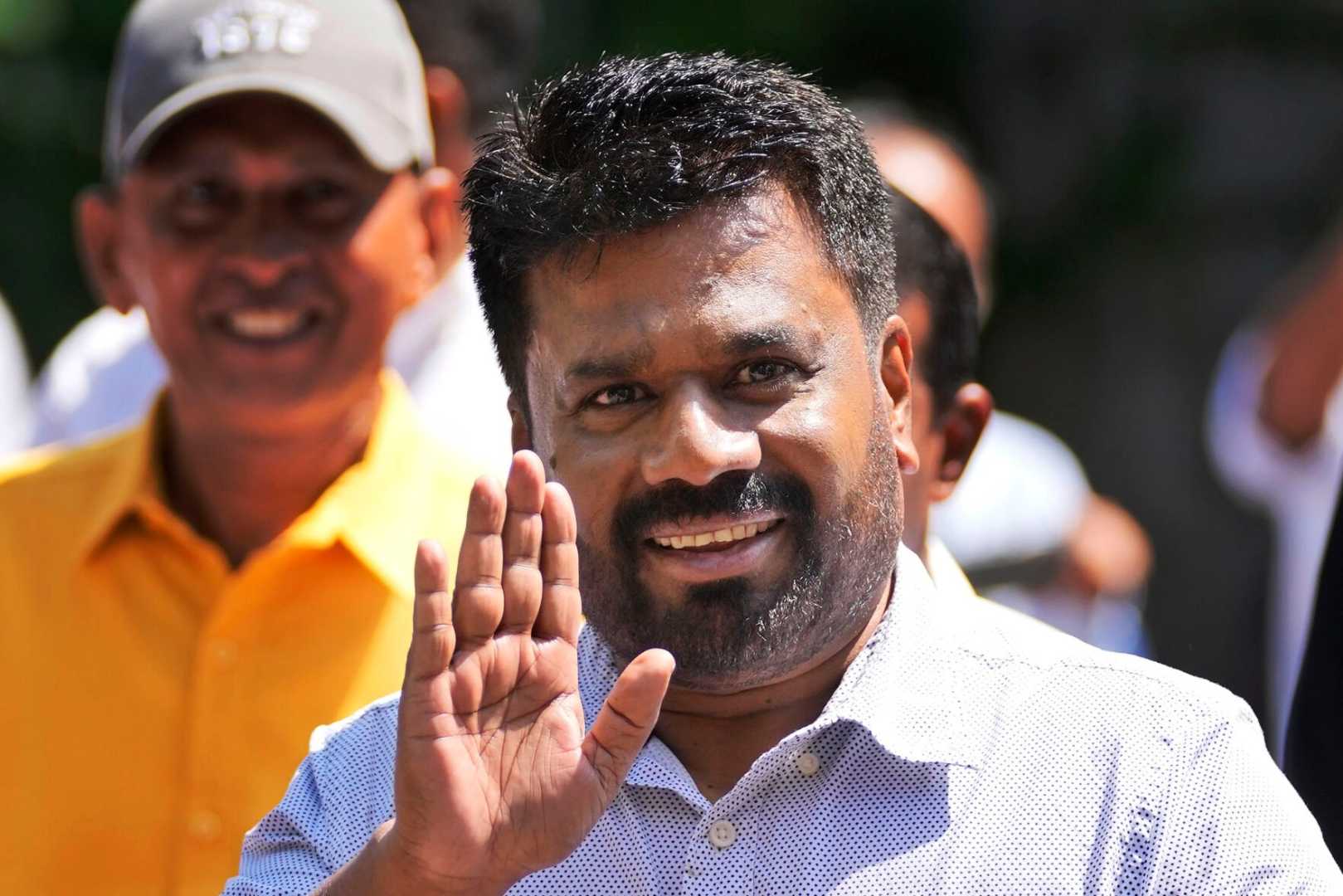Politics
Sri Lanka Presidential Election Goes to Second Round After Historic Tie

For the first time in Sri Lanka‘s history, the presidential election has proceeded to a second round of counting after no candidate secured more than 50% of the votes in the initial tally. This development has led the election commission to count voters’ second and third preferences to determine the winning candidate.
The preliminary round of counting completed showed Anura Kumara Dissanayake, a prominent leftist politician, leading with 42.31% of the votes. Sajith Premadasa followed closely with 32.76%. Consequently, all other candidates have been eliminated, and their ballots are now being examined for secondary and tertiary preferences for the two frontrunners.
Sri Lankan election laws stipulate that a candidate must achieve 50% plus one vote to be declared the winner. This presidential election is the first since widespread protests led to the ousting of Gotabaya Rajapaksa in 2022, amid the country’s worst economic crisis. Historically, each of Sri Lanka’s eight presidential elections since 1982 has concluded after the first round of counting, making this poll one of the closest in the country’s history.
Approximately 17 million Sri Lankans were eligible to cast their vote on the election day, which the country’s elections commission described as the most peaceful in its history. However, a curfew was imposed late Saturday night for public safety and lifted by noon Sunday, local time.
Dissanayake garnered significant voter support with promises of anti-corruption measures and good governance, resonating with citizens seeking systematic change. His initial lead prompted congratulations from notable figures, including the foreign minister. However, recent figures indicate Premadasa gaining traction on him, and incumbent President Ranil Wickremesinghe attaining 17% of the initial votes, landing him in third place.
The newly elected president will face significant challenges, notably reviving the troubled economy and alleviating poverty. The “Aragalaya” (struggle) movement, which played a key role in Rajapaksa’s removal, was largely driven by an economic collapse marked by depleted foreign currency reserves, exorbitant public debt of $83 billion, and skyrocketing inflation that reached a staggering 70%, placing essential commodities out of reach for many.
Critics have attributed the economic decline to major policy missteps, weak export frameworks, persistent under-taxation, and a detrimental impact from the COVID-19 pandemic on tourism, a critical sector of the economy. In tandem, corruption and governance failures have fueled dissatisfaction with the Rajapaksa family’s prolonged rule.
“The most serious challenge is restoring the economy,” Dr. Athulasiri Samarakoon, a political scientist from the Open University of Sri Lanka, noted in an interview with the BBC Sinhala Service.
Under Wickremesinghe, a $2.9 billion bailout was secured from the International Monetary Fund (IMF), vital for unlocking further international aid but necessitating rigorous economic and governance reforms. Sri Lanka is working on renegotiating debt terms with international and local creditors, primarily focusing on its $36 billion foreign debt, with China being the largest bilateral creditor at $7 billion.
In their campaigns, Dissanayake has pledged to advance manufacturing, agriculture, and IT sectors while adjusting tax rates and expanding the tax base. Premadasa emphasized IT enhancements and proposed 25 new industrial zones along with boosting tourism as a leading foreign currency revenue source. Wickremesinghe aimed to double tourist numbers, establish a national wealth fund and introduce new economic zones to foster growth.












